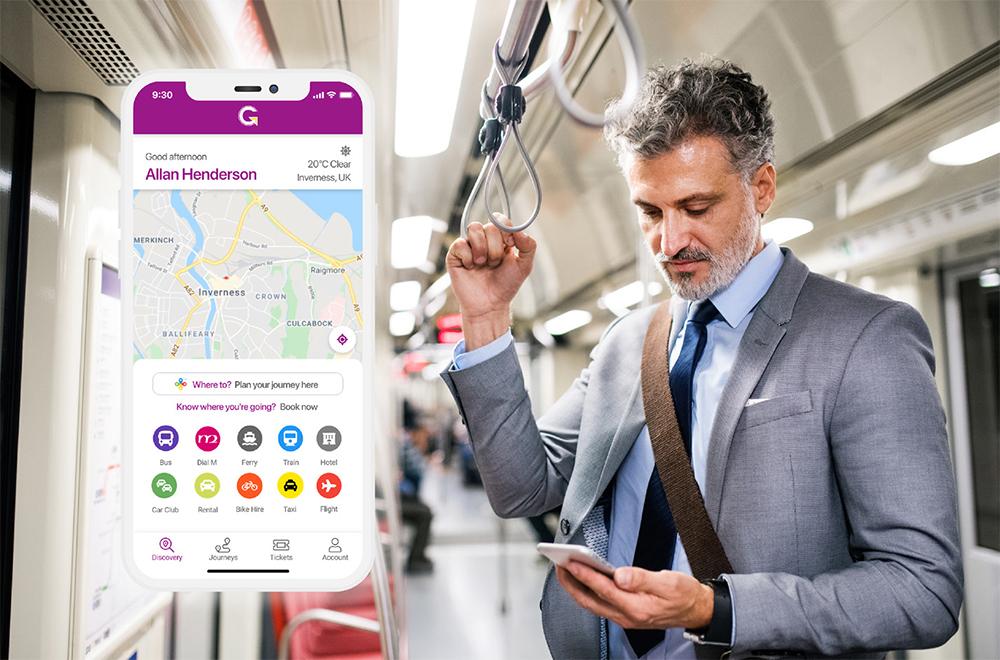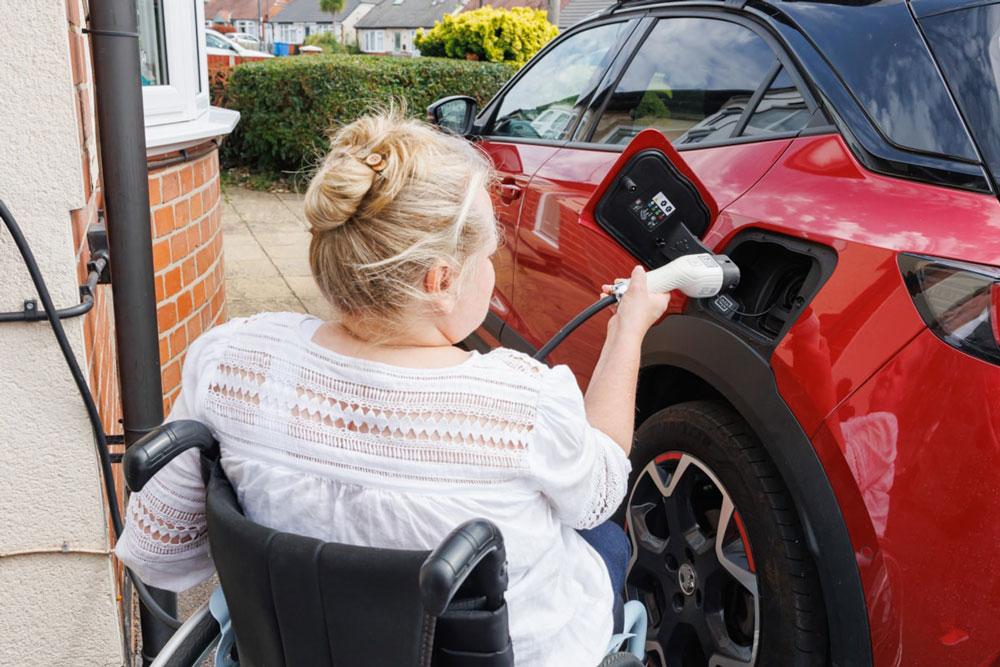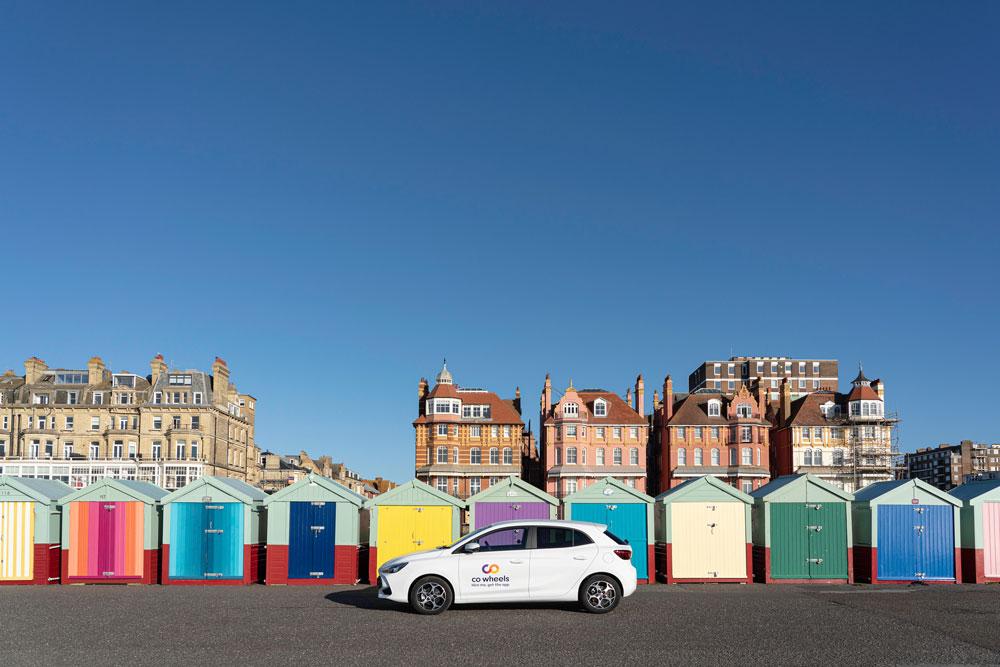In late August, the government published its Mobility as a Service (MaaS) Code of Practice. The Urban Mobility Partnership views this as an important tool for local authorities looking to implement MaaS solutions, and will pave the way for greener business travel
MaaS systems can improve accessibility, cost-efficiency and encourage a shift away from private vehicle usage and ownership. It can offer streamlined journeys for travellers and commuters, help achieve the UK’s environmental targets and make use of innovative technology to encourage modal shift.
The Urban Mobility Partnership (UMP) has been at the forefront of calling for a Code of Practice from government to ensure that the development of MaaS is not only in line with the ambitions of government at all levels, but also places the consumers at the heart of solutions.
UMP, as a coalition committed to developing policy solutions to improve future mobility, has consistently worked with national and local governments on the development and implementation of MaaS policy and in 2021 released its own Practical Guide to Mobility as a Service. We were therefore delighted to see that a number of our own recommendations were included in the Code of Practice, and it is the culmination of extensive engagement from the Department for Transport with UMP and the broader industry.
Additionally, we were pleased to see that the GO-HI Project in the Highlands and Islands of Scotland, in which many UMP members are participating, and our member Mobilleo is the provider, is included in the Code of Practice as a best-practice example of how to implement MaaS. This shows the potential of an organisation like UMP, where members can work together to ensure effective solutions, rather than in a silo.
The importance of data
In particular, we were delighted to see the inclusion of recommendations around data sharing, accessibility and the inclusion of sustainability and emissions data in MaaS applications. Data sharing and standardisation is vital to the development of MaaS as without this, the interoperability of modes and services is unlikely to be realised. UMP has advocated against a monopolisation of MaaS solutions and the data and services on MaaS platforms. The inclusion of data considerations within the Code of Practice is therefore incredibly important as a way to protect the consumer, local authorities and companies.
Undoubtedly the Code of Practice is a positive step forward for MaaS in the UK. However, it is worth outlining the next steps to all stakeholders to realise the potential of MaaS solutions, in order to develop more interconnected transport systems where switching between modes for multi-modal journeys is seamless.
A growing market
The MaaS sector is expected to grow significantly, with estimates suggesting that by 2030 the global MaaS market will be worth $40 billion up from an estimated $5.7 billion this year. Clearly investment is coming into the MaaS market, and the number of players and operators will grow. As urbanisation continues to occur, the demand for more efficient and accessible transport systems will become also become greater and cities desire to have MaaS applications will become significant.
Despite this inevitable investment and demand, there are barriers which are holding back the deployment of MaaS and are preventing MaaS solutions becoming a part of daily life and as synonymous with mobility as the private car.
Fundamentally, for MaaS to work, a user must be able to access all the available transport modes, in a particular area, in one application. But there also needs to be a sufficient level of service of those modes and different types to cater for all journeys and people. MaaS has the capability to nudge consumers to where necessary make optimal choices, considering a range of different variables, for their journeys. But for this to be achieved customers must have trust in those local available services whether it be the local bus service, micromobility solutions, DRT services or car rental, and not just the technology of a MaaS solution.
Local authority involvement
Before we consider MaaS, we need to expand these services that sit on applications and much of this lies in the power of local authorities. Now we have the Code of Practice and local authorities in the UK have the guidance to support MaaS delivery, an assessment of local available transport services should be made. They should then look to operators willing to expand services and make investments in order to develop local transport systems and products which can best serve consumers and be deployed on MaaS. The policy behind the deployment of new services or expansion of existing services should reflect overarching policy objectives around reducing private car ownership, i.e targeting areas where the biggest difference can be made but also around MaaS and integrating these services as much as possible, both physically and digitally – taking into account the Code of Practice.
Boosting adoption
The next step policy makers and stakeholders need to consider is how we boost adoption of the aforementioned services and any future MaaS application. MaaS has significant potential to boost the adoption of mobility services and public transport, but consumers are still going to need to be encouraged to do so. Policy in the UK has often gone about this in a way as such to ‘punish’ private car users driving old polluting vehicles through the introduction of clean air zones or ultra-low emission zones. Now it isn’t to say these measures will not eventually work, but there needs to be a speeding up of achieving modal shift ambitions and less focus on the upgrading of private vehicles to either be low emission or zero emission.
Any local authority looking to deploy MaaS should ensure that within their budget, revenue funding is set aside for the continual marketing and promotion of the MaaS solution. There have been successes in deploying journey planners in the UK, particularly in London and these have spread often by word of mouth. But both MaaS providers and local governments deploying MaaS will be making significant investments into products, services and return on investment, both commercially and in terms of delivering the patronage will be vital. Ensuring regular promotion of a MaaS application will help to make local consumers, organisations, and businesses aware of these services.
Business travel
Another area in which to build on this is by encouraging businesses, the public sector, and other organisations to use MaaS for their business travel. B2B MaaS applications are already in existence, however with the deployment of ‘public MaaS’ the use of MaaS for business travel can be expanded and increasingly utilised. Not only does this support businesses in reducing their emissions, at a time when ESG reporting requirements are increasing, but it also exposes everyone within that organisation to a new MaaS service and will in turn make them more likely to use MaaS in their commutes and leisure travel.
Policy makers have a role to play in this, both at a national and local level, by working with organisations and major employers to encourage them to make more use of sustainable travel modes, and in turn MaaS, and by providing guidance to those organisations.
In the GO-HI project highlighted in the Government’s Code of Practice, Highlands Council have indeed taken these steps. They have ensured that their staff make use of the GO-HI app for all of their own staff travel and have encouraged staff to use it for their commute. This has boosted the use of the app but has also allowed operators of mobility services in the area to expand and provide additional services. This sort of lighter touch intervention, alongside the Code of Practice has real potential to support the growth of MaaS in the UK.
A positive outlook
As more projects are coming live, and there is increasing investment into MaaS and partner solutions, this indicates a positive outlook for MaaS the UK. One such example is the Transport for the West Midlands announcement that they will be launching one of the largest MaaS solutions in the near future alongside a number of UMP members. The Department for Transport will undoubtedly be monitoring the progress of schemes such as this, to track against the Code of Practice and ensure that they are delivering on their overarching vision for transport systems across the UK.
The Urban Mobility Partnership looks forward to continuing to work with policymakers and stakeholders to ensure transport systems across the country reflect the wants of consumers alongside reducing emissions and congestion.






